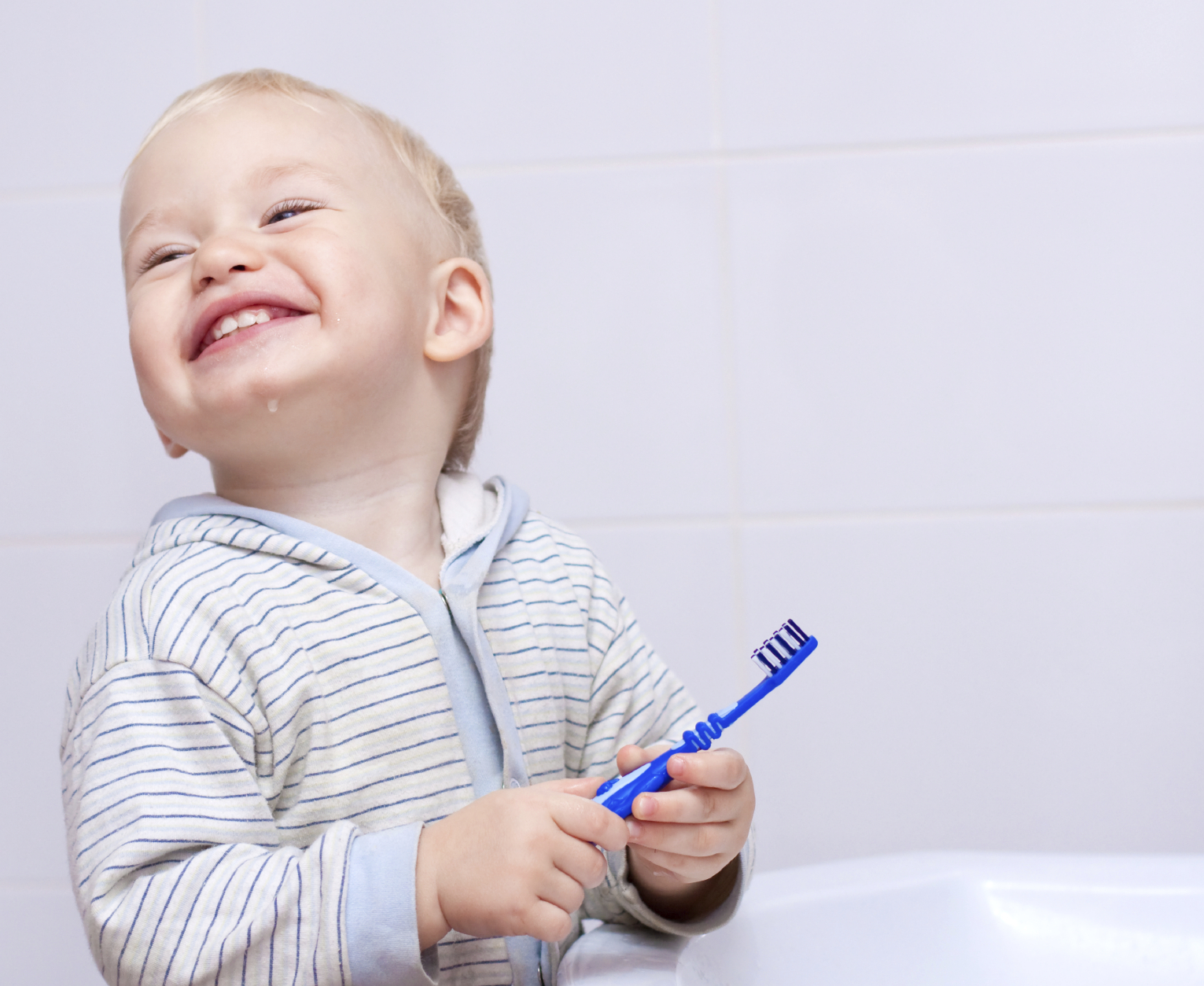
Typically around four months, your child will sprout their first one or two teeth. At that time, we encourage you just to wipe any plaque you see off their teeth and gums twice a day, or after major meals, with a wet piece of gauze or washcloth. This will help rid any bacteria that could be harmful to your child’s emerging teeth. As soon as your child has several strong baby teeth, consider using a soft, small toothbrush to begin brushing in the morning and at night to build the habit. Please note that we do not recommend your child use toothpaste until at least age two. Consult your Dental Care Center pediatric dentist for more information on brushing!
The short answer – NO! Check to see if your child’s toothpaste contains fluoride. Because fluoride can be toxic if your child swallows it in large amounts, our pediatric dentists recommend parents put toothpaste “the size of a grain of rice” on their children’s toothbrush. There are several kinds of toothpaste on the market today that can help clean your child’s teeth but do not contain fluoride. Consider using one of these pastes until your child learns to spit on their own consistently. Remember to supervise your child’s brushing until around age six since swallowing fluoride can lead to fluorosis, too, causing possible teeth discoloration.
We recommend scheduling an appointment with one of our wonderful pediatric dentists once your child has several baby teeth in, or at the latest, around their first birthday. While a checkup every six months is standard for keeping your child’s mouth happy and healthy, this time is subject to vary based on your child’s oral health. Also, prepare ahead of time for their first appointment! Consider bringing your child in with you to one of your appointments so they can become familiar and comfortable with our office and staff!
Be aware of the signs! Let your Dental Care Center pediatric dentist know if your child has emerging brown or white spots or pits on their teeth. In addition, watch how much sugar your child is consuming, striving for a balanced diet. Remember, it’s important your child learn good dental habits from an early age. Supervise and teach correct flossing and brushing techniques that occur at least twice a day and schedule regular visits with our pediatric dentists.
While it is entirely normal for a child up to age two or two and a half to be sucking their thumb, we recommend talking to one of our pediatric dentist professionals if your child continues to suck their thumb past age three. There are potential, serious long term dental effects your child could develop such as an open bite and a tongue thrusting habit which could impact their eating and swallowing.